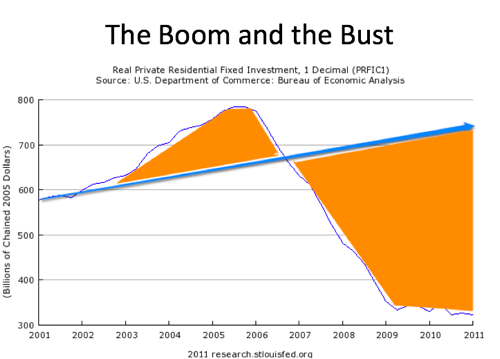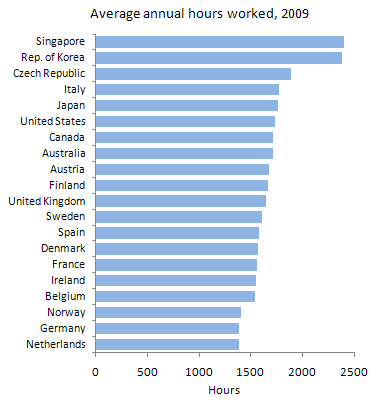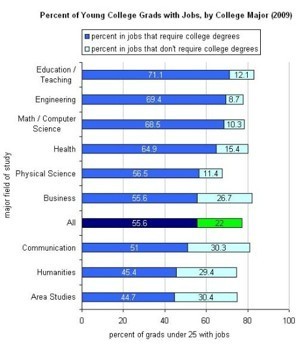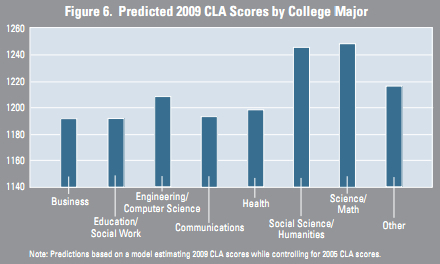Matthew Yglesias's Blog, page 2301
May 22, 2011
America's Housing Shortfall
An excellent chart from Brad DeLong's talk at the Urban Land Institute conference makes a point that few people realize—the net impact of the housing boom and the housing bust is that we now appear to have a substantial housing shortage in America:

Part of what's needed to turn this around is an overall healthier economy. And part of what's needed is for more land to be zoned so as to permit the construction of multi-family rental units, which would allow people to have places to live without requiring a renewed boom in mortgage lending. Alternatively, some kind of conceptual breakthrough in how to efficiently manage large blocs of single-family homes as rental properties would do the trick.


The Plan
I agree with Gadi Taub who said recently that while peace is the ideal the highest priority for both peoples right now is partition. Netanyahu's position makes that impossible. The 1967 lines are the only practical and politically conceivable basis for such a division — with mutually agreed upon swaps of territory along those lines. Netanyahu's plan is simply to withdraw from areas of dense population within the West Bank. In fact, I think that overstates the case. I don't think Netanyahu has a plan beyond holding his coalition together and himself in the prime ministership. The rejectionists' 'plan' is simply to hold on for as long as possible and play for time.
The man is a fool at so many levels. But there's no denying that he speaks for a very large chunk of the Israeli electorate.
I hear this a lot, but I think it's wrong. I actually think the Israeli politicians with no plan beyond short-term politics are the moderates of the Barak/Olmert ilk who avow the urgent need for partition but can't ever seem to bring themselves to dismantle a settlement or speak the truth to the Israeli population.
For the right-wing politicians, I think we should to a greater extent take them at their word. There is a genuine religious nationalist view that the Jewish state has to incorporate in an important way the religiously significant city of Jerusalem and its environs and not just the coastal strip where the bulk of the early (secular) Zionist settlement occurred. There's also a perfectly genuine view that there's really "no such thing as a Palestinian" other than as a kind of generic "Arab" who happens to live in the former area of the British colony of Palestine. On this view, the entire Palestinian national movement is either a kind of cynical ruse deployed by Arab despots or a bad-faith mask for a desire to destroy the entire Jewish state.
If that's right, then the best plan really is to build a security wall that incorporates lots of Arab land in and around Jerusalem or otherwise adjacent to the Green Line, cut Gaza and the West Bank off from each other, count on the might of the IDF, the diplomatic protection of the United States, and the growing political strength of Israel-friendly European far-right parties to protect you from hostile neighbors, and cross your fingers hoping for a change in Arab opinion that will allow for the incorporation of Gaza into Egypt and the main West Bank centers of Arab population into Jordan.
I don't think any of this is correct, and it all founders (both in premise and in conclusion) on the assumed inauthenticity of Palestinian nationalism, but it should be acknowledged that it "makes sense" as a theory of the world.


Indiana Governor Mitch Daniels Says He's Not Running, So Everything's Coming Up Pawlenty

Mitch Daniels is not running for president. I have to see this as good news for Tim Pawlenty. Pawlenty, a fellow midwestern evangelical protestant, is the most demographically similar candidate in the field.
On paper, Pawlenty is ideologically very similar to Daniels. He's got some minor heterodoxy in his past in the form of flirtation with progressive ideas on climate change, but Daniels has flirted with progressive ideas on defense spending. But as I've written previously, conservative elites are distinctly unimpressed with Pawlenty's actual (meager) record of accomplishments.
Intrade bettors continue to think that Mitt Romney's odds are better than Pawlenty's but I don't see how that could possibly be right. I don't think it's appropriate for guys who write about politics for a living to bet on those markets, but I'd say is a huge buy opportunity priced at around 20%. I'd rate 50% as a fair market value.


Harassment Incentives
These women have nothing to lose when they report men who cross the line sexually. So the maid reported. And then, it turns out, all sorts of women in higher up positions spoke up against Strauss-Kahn. The women wouldn't report the harassment on their own. They don't want to suffer retribution. But now there will be no retribution, so it's safe to come forward.
This is why men are going to focus harassment at the higher ranks of the corporate ladder. These are the women who have to keep their mouths shut if they want to keep climbing the ladder.
But God help the guy who harasses a women with nothing to lose.
On the other hand, Steven Greenhouse reports that various kinds of harassment and assault of hotel maids are extremely common. Is it true, after all, that a maid has "nothing to lose"? Perhaps that would be true if the economy operated at a permanent full-employment state. Even if you did get fired, you could find some other hotel to clean in. But when unemployment's 9 percent it seems to me a low-wage worker has a huge amount to lose. Unless she's represented by a strong labor union, which was the case for the maid at the Sofitel in question.


May 21, 2011
Paul Ryan's Generational Warfare
Very smart take from Mark Schmitt on the implications of a plan that promises to cut the 54-and-under crowd off from Medicare:
If there was ever going to be a generational war in this country, that high school class of '74 would be its Mason-Dixon line. It's the moment when Bill Clinton's promise—"if you work hard and play by the rules you'll get ahead"—began to lose its value. Today's seniors and near-seniors spent much of their working lives in that postwar world, with their incomes rising, investments gaining, their health increasingly secure, and their retirements predictable. Everyone 55 and younger spent his or her entire working life in an economy where all those trends had stalled or reversed. To borrow former White House economist Jared Bernstein's phrase, it was the "You're On Your Own" economy. Finally, those 55-year-olds are spending several of what should be their peak earning years, years when they should be salting away money in their 401(k)s and IRAs, in a period of deep recession and very slow recovery.
The Ryan plan, in other words, delivers to the older generation exactly what they've had all their lives—secure and predictable benefits—and to the next generation, more of what they've known—insecurity and risk. It's hardly the first generational fight the GOP has started. The previous one was just last fall, when they campaigned for Medicare, and against the $500 billion in cuts (mostly by getting rid of the overgenerous subsidies to private insurers in an experimental program) passed as part of the Affordable Care Act. With an off-year electorate that was overwhelmingly older, they could put all their bets on the older side, knowing that seniors would see little benefit from the Affordable Care Act and were naturally worried about any change to the health system they enjoyed.
Worth your time to read and consider.


It Absolutely Is Our Business Whether Or Not New Jersey Governor Chris Christie Believes In Evolution
Jacob Weisberg's article on weird conservative beliefs ledes with this:
At a press conference last week, someone asked Chris Christie for his views on evolution vs. creationism. "That's none of your business," the New Jersey governor barked in response.
Weisberg moves on quickly to other things, just using this as an illustrative example. But it's worth highlighting the fact that it absolutely is our business whether or not Chris Christie believes in evolution. This isn't like asking whether Christie's secretly a Rangers fan or something. Christie oversees education policy for the state of New Jersey and they teach biology in New Jersey schools. You can look up the state's life science curriculum standards if you scroll down a bit here (it's section 5.3) and it involves evolution. And rightly so! Does Christie stand by that, or doesn't he?


Noam Chomsky Has Difficulty Quoting People Accurately
Eric Alterman on the killing of Osama bin Laden:
The killing of Osama bin Laden was a just and necessary undertaking; just because he had the blood of thousands of innocents on his hands, and necessary because his continued escape from justice was an inspiration to others to try to follow in his footsteps. But it should not be occasion for joy. The Talmud tells the story of angels dancing and singing as the waters of the Red Sea close over the heads of the Egyptian troops after the Israelites have safely crossed over, only to be rebuked by their God: "How dare you dance and sing as my children drown in the sea?"
Noam Chomsky on Eric Alterman:
[Geoffrey] Robertson attributes the murder to "America's obsessive belief in capital punishment—alone among advanced nations—[which] is reflected in its rejoicing at the manner of bin Laden's demise." For example, Nation columnist Eric Alterman writes that "The killing of Osama bin Laden was a just and necessary undertaking."
Eric "It Should Not Be Occasion For Joy" Alterman now counts as an "example" of "rejoicing at the manner of bin Laden's demise"? How so?
For the record, my view is that Alterman is too generous to the Obama administration here. Killing Osama bin Laden was a perfectly legal and valid course of action under US and domestic law, but the option of asking US forces to put themselves at risk for the sake of taking bin Laden alive seems to have existed. I don't think the government was under a legal obligation to pursue that option, but the decision not to pursue it was a policy choice and not a forced move.


Hardworking Italians vs Lazy Germans
European Union economic policy often seems to proceed largely on the basis of national stereotypes, so as a reality check it's always worth looking at Ye Old Chart of hours worked:

The high-savings, high-exports Dutch and Germans do the least work of any OECD economy. Italians are so much harder working than northern Europeans that they leave Anglophones and even the Japanese in the dust.


Sixth and Rye
American Jews are generous donors to all kinds of causes, both cultural and political, Jewish and non-Jewish, so it's struck me as odd for a while now that my community has been so complacent in the face of the ongoing destruction of Ashkenazi diaspora cuisine. Border disputes and high politics aside, the State of Israel simply doesn't carry the torch for the actual heritage of American Jewish families in this way. In other words: Lots of falafel, no pastrami.
But there is A New Hope:
Helmed by Chefs Spike Mendelsohn and Malcolm Mitchell, the truck serves up "old-fashioned Kosher deli cuisine" like corned beef sandwiches, fresh-cut potato chips, and, of course, pickles. The truck — which is actually on loan from the Eat Wonky fleet (Wonky's Jeff Kelley is also part of the project) — was the result of Sixth & I's "Next Great Idea for the New Year" contest, which asked Washingtonians what the Synagogue could be doing to expand its reach into the D.C. community. Sixth & Rye is funded in part by a grant from The Natan Fund, an organization which "supports innovative projects that are shaping the Jewish future," and the truck serves exclusively kosher fare — there's even a mashgiach supervising all food preparation and service.
That's a great idea, and I think philanthropy in this sphere needs to be expanded. The free market doesn't seem to want to provide proper bagels in the DC area, but surely the total amount of subsidy that would be required to make it happen would be a drop in the bucket compared to what's spent in this town on other Jewish-supported causes.


Which Kinds Of College Degrees Are Worth What

Via Catherine Rampell, research from Andrew Sum on job placement by college major can be found over on the right. Ezra Klein deems this "fairly depressing" as "[a]bout a quarter of college graduates don't have jobs, and an additional 22 percent don't have jobs that use their degree."
I always find the idea of jobs that require a college degree to be kind of a weird one. Do you need a college degree to be a policy-focused political blogger? Well, it's not like teaching. To teach second grade you literally must have a college degree. Teaching children to multiply without a college degree is illegal. By contrast, anyone in the world is allowed to start a policy-focused political blog. But in practice, as best I know all of us in this particular game do in fact have college degrees. Indeed, not only do we have college degrees but on average policy-focused political bloggers went to substantially more selective colleges than did second grade teachers. But, again, I'm pretty sure that if Dylan Matthews wanted to drop out of college and become a professional blogger that he could pull that off. But if you're not Dylan, your resume will probably attract some raised eyebrows here at ThinkProgress if you apply for an entry level gig before finishing school. By the same token, my strung suspicion is that Microsoft overwhelming hires people with college degrees for professional work but Bill Gates himself doesn't have one.
Which is all a long-winded way of saying that I think looking at this kind of data in terms of what's "required" for what winds up mixing and matching a bunch of different things. I think it's instead instructive to look at this data from Richard Arum, Josipa Roksa, and Esther Cho about learning:
>
What this chart attempts to do is show gains in Collegiate Learning Assessment scores by major-type when controlling for the characteristics of the people who go into different fields. What it shows is that not only do education and business majors generally start college with worse test scores than people in the traditional math/science/social science/humanities sphere they generally seem to learn less while in college as well. So even though education majors do much better than humanities majors at getting jobs that require a college degree, that looks to me like it's plausibly an artifact of regulatory policy or BLS categorization. There may be lots of jobs that don't require a college degree but for which the kind of general skills ("including critical
thinking, analytical reasoning, and writing") would be useful. Indeed, I think this is especially important when you try to think about career ladders. There are lots of jobs a person might have such that the job itself neither requires a college degree nor a great deal in terms of "general skills" but where such skills would be very helpful in rising to become a manager or quitting to start your own business.


Matthew Yglesias's Blog
- Matthew Yglesias's profile
- 72 followers



